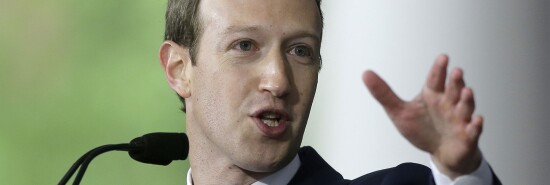
States should stop Zuck Bucks 2.0
Jason Snead and Andy Jackson
Video Embed
In 2020, a left-wing nonprofit group called the Center for Tech and Civic Life doled out $350 million in private grants to thousands of election offices around the country. Mark Zuckerberg and his wife, Priscilla Chan, pledged the funds (commonly called “Zuck Bucks”), and the progressive Democrats and partisan activists at CTCL funneled the money disproportionately to jurisdictions that voted Democratic.
The nation is still dealing with the fallout.
‘ZUCK BUCKS 2.0’: REPORT WARNS OF DARK MONEY GROUPS INFLUENCING LOCAL ELECTION OFFICES
Now, CTCL is at it again. Along with other left-wing nonprofits and companies, the group has launched an $80 million initiative, the U.S. Alliance for Election Excellence, aimed at local election offices and administrators. CTCL describes the alliance as a nonpartisan venture to “bring together” election officials. But newly revealed records uncovered by our organizations show the truth: The alliance is focused on systematically reshaping election offices and pushing progressive voting policies. How state and local governments respond will have ramifications for free and fair elections in 2024 and beyond.
America has already seen how money and influence can skew election administration for partisan gain. In just one example of many, a review of the 2020 election in North Carolina found that counties receiving CTCL funding supported Joe Biden 51.9% to 48.1%, while counties not receiving it supported Donald Trump 52.3% to 47.7%. There was a small boost in turnout in counties that received Zuck Bucks, but that increase disproportionately benefited Democratic candidates.
Now, the Left aims to go further. They chose 10 counties and municipalities in seven states to test their new scheme. The alliance calls those guinea pigs “Centers for Election Excellence.” Our organizations, the Honest Elections Project and the John Locke Foundation, used public records requests to obtain communications between these offices and the alliance. What we found was alarming.
Once again, CTCL is pumping eye-popping sums of money into election offices, which, contrary to CTCL’s public statements, come with tight controls. But the alliance goes well beyond a traditional grant program. It is nothing less than a shadow campaign to remake election offices from the ground up.
Members are charged to join, and the fees are converted into “credits” to buy services exclusively from CTCL and its left-wing partners. In some jurisdictions, these fees are waived through “scholarships” that give the offices access to funding entirely outside normal, public channels. The offerings range from tech services to “coaching” and even “political” consulting. The scheme is so comprehensive that it offers public-relations support to officials facing blowback for joining.
The records we uncovered also expose the network as a two-way street. As one election official put it in her notes, “I get something and give something.” Offices are expected, at taxpayer expense, to help the alliance refine its programming and to hand over significant amounts of data on their inner workings. Members are expected to work with the alliance to develop and implement “improvement plans” that reshape the way they function, giving CTCL enormous influence over election administration.
You only have to scratch the surface to find that alliance partners are tools of the Left. They are funded by some of the largest progressive dark money groups in the country, such as Arabella Advisors’s New Venture Fund and eBay Chairman Pierre Omidyar’s Democracy Fund. The network of organizations behind the alliance includes groups such as the Center for Secure and Modern Elections, a pop-up organization in Arabella Advisors’s sprawling network.
Other alliance members, such as the CTCL and the Institute for Responsive Government, are staffed by people with deep ties to the Democratic Party and progressive organizations.
The nation did not discover the full extent of CTCL’s Zuck Bucks operation until long after the 2020 election. The response was overwhelming: Nearly half of the states have banned private funding for administering elections. So, what can states do about this new threat now?
For starters, states that have not already instituted bans on private funding of election administration should do so. It is telling that none of the alliance’s centers are in states that have such bans in place. Even so, a ban may not be enough. CTCL has structured the alliance in ways that may allow them to sidestep such a ban. States with bans in place should review them to make sure that they cover the “scholarships” and other schemes used by the alliance.
State legislatures should also exercise strict oversight of these so-called Centers for Election Excellence to ensure members of the alliance do not exert undue influence over how elections are conducted in their states.
Elections are the foundation of our democracy, and they should be administrated without overt or implicit bias in favor of one party. The U.S. Alliance for Election Excellence is a direct challenge to that principle. Fortunately, states still have time to stop Zuck Bucks 2.0.
CLICK HERE TO READ MORE FROM THE WASHINGTON EXAMINER
Jason Snead is the Executive Director of Honest Elections Project. Dr. Andy Jackson, the Director of the Civitas Center for Public Integrity at the John Locke Foundation.
